Ah yes, Atari VCS, the delayed Linux-powered gaming box that was crowdfunded on IndieGoGo. It's still a thing and the team seem to think it's all going well.
In a new development update on the Atari VCS Medium account, the team posted a set of questions and answers from the COO Michael Arzt as to what's been happening recently. This follows on from the news back in October, where their system architect Rob Wyatt quit citing non-payment.
From the post they said they're currently going over the hardware to test "for functionality and reliability" and doing tweaks as needed, as then design and engineering teams recently went over to visit their partners in China who are building the actual Atari VCS units along with some photos:
Also detailed in the Q&A post is that they're developing the UI and store in the Unity game engine and they say it's "almost complete". Unity are apparently working closely with them on this, and they have "several studios" lined up ready for the Atari VCS launch. They're not saying who or what games though.
For streaming services like Amazon, Netflix and so on, it does sound like they will not have dedicated applications for them. Not yet anyway, they said for such service there will be the choice of viewing them through a web browser and that "the first big wave of apps isn’t likely to come before Q1".
When talking about the Atari OS, they confirmed yet again it's based on a "Linux foundation" with their integrated Atari VCS store and the Sandbox Mode will be available for installing and booting more traditional operating systems, like a standard Linux distribution (or Windows) so you could boot up Steam on it if you wanted.
IndieGoGo backers were supposed to be getting their units before the public release in December this year. That is now being delayed, although they claim "we are talking weeks here, not months, and the Indiegogo backers remain our top priority".
According to the post, they are on schedule for a full release in March 2020. Let's see what happens.
Quoting: NeverthelessI really don't see why this should be true . . . unless maybe by "just 64bit Linux" you mean leaving out 32 bit compatibility libraries, but I can't imagine Valve doing that since Steam itself needs them.Quoting: MohandevirQuoting: NeverthelessQuoting: MohandevirQuoting: NeverthelessQuoting: MohandevirGoogle Stadia... Atari VCS... I still wonder if we'll ever see a Linux gaming system that starts with a "Bang! Nailed it!".
It's not impossible... Sony's Playstation is similar to a BSD platform... They did it.
They did it because they could legally own the underlying pre-existing operating system, and because it's relatively easy to support uniform hardware of dedicated vendors with drivers. It did not help people wanting to play games on their BSD boxes.
To support Desktop Linux means wanting to support open gaming on a wide variety of hardware and drivers.
Totally... Still, I'm wondering what would have happened if Valve decided to go all in in the Console market with a Steam Machine initiative like Microsoft's Xbox. I mean, with a dedicated Steam Machine store that's a subset of what you may find in the desktop client (100% Linux/Proton and controller supported titles only) and optimized for the Steam Machine (dedicated hardware built by Valve)... But the games you buy on the Steam Machines' store are then available and synced on any other desktop clients...
Well we'll never know, I guess...
Maybe Valve is sort of "all in" already. The question is what they want to achieve.
I think you have to look at the revenue side and the expenditure side. Someone who wants to market a closed console system like XBox, has to spend money to solve a manageable technical problem. The more defined the hardware and OS to be supported, the smaller the amount of money needed. Much more money is needed to get developers to support the console with games and to establish the platform on the market. In return, the owner of the platform earns an exclusive share on the software, while the hardware is often sold at a loss in the beginning.
Valve seems to pursue (or have to pursue) the exact opposite goal with its Linux initiative. An open system consisting of various hardware and OS variants, which even starts the (partly outdated) software of other platforms, sometimes even coming from other distribution platforms. It is the approach which needs the biggest technical effort, but has the advantage of lots of existing software. They get money for all they sell on the Steam shop and support the software they already sold. The Steam Machine plus Steam Controller could have been an attempt to standardize the hardware and the controller concept. This didn't work very well, baybe partly because the Steam Machines weren't nessessary to use the software.
I also see the VCS as a kind of in-between thing with a uniform controller concept for Atari retro software and the possibility for other more open uses, which probably will be very limited considering the performance of the hardware, and from which Atari won't earn anything or at least not much.
You got my point. Thing is Valve tried a "middle" solution that resulted in a confusing offer... Was it to bring PC gamers to the console market, or console gamers to the PC market? They failed at both. Nobody knew who it was for.
I think it could have been possible to create a pure Linux based console (SteamOS, remember?), based on one or two sets of x64 PC hardware built by Valve (Just like the Atari VCS) and support the PC market as two separate offers, that would benefit both, software side (it's all open source afterall); one for the console gamers and one for the PC gamers. Yes, it requires more investments and that's what I would have liked to see. More investments also means more determination.
This said, don't get me wrong, Valve is doing awesome things for Linux on the desktop and I'm really thankful for that, but for the Steam Machine thing, they seem to have got it off the door, and never looked at it again. Like they knew, from the start, that it would fail. Just maintaining SteamOS looked like it became a burden, early on.
But I'm no insider and I don't want to underestimate the work of anyone. The guys who worked directly on the project have all my admiration (PLGriffais, Timothee Besset, JVert and others I can't remember)... It's just my impressions.
My point is: If Valve did create an open console with a narrow set of hardware and just 64bit Linux, then most pre existing software on Steam would not run on it, and the software made for this platform would not nessessarily run on existing Steam-users Linux boxes. I don't think such a platform would take off any more than Steam Machines did.
I mean, my computer has "a narrow set of hardware" (specifically: one set) and runs 64 bit Linux, and lots of pre-existing software on Steam runs on it. And I've never even used Proton! Once you add up the Linux-native, the stuff that works well in Proton, Dosbox and Boxtron, not to mention a few more specialized engines (plus, these days, for better or worse it'd run Stadia stuff because everything does), I don't see why one solid hardware configuration shouldn't be able to run pretty major metric buttloads of stuff.
The major problems with Steam Machines were not, even then, that there weren't enough games in terms of numbers. The problems were lack of multimedia integration, lack of polish/finish, insufficient big high profile current AAA games, lack of a massive marketing push, and price. And some technical issues around graphics and drivers.
Most of those were issues around Valve not doing a great job with the release, basically. The other issues are significantly smaller now, although they are not gone. They wanted Wine to handle the missing AAA games, and Wine was not ready to do that; but currently, Wine/Proton is getting close. When Proton handles anti-cheat, I think the technical underpinnings would be there for a re-do of Steam Machines which could succeed if Valve took it seriously and executed well (and dropped a major wad of cash on marketing). I'm not totally expecting them to do that, just saying they could.
Quoting: Purple Library GuyQuoting: NeverthelessI really don't see why this should be true . . . unless maybe by "just 64bit Linux" you mean leaving out 32 bit compatibility libraries, but I can't imagine Valve doing that since Steam itself needs them.Quoting: MohandevirQuoting: NeverthelessQuoting: MohandevirQuoting: NeverthelessQuoting: MohandevirGoogle Stadia... Atari VCS... I still wonder if we'll ever see a Linux gaming system that starts with a "Bang! Nailed it!".
It's not impossible... Sony's Playstation is similar to a BSD platform... They did it.
They did it because they could legally own the underlying pre-existing operating system, and because it's relatively easy to support uniform hardware of dedicated vendors with drivers. It did not help people wanting to play games on their BSD boxes.
To support Desktop Linux means wanting to support open gaming on a wide variety of hardware and drivers.
Totally... Still, I'm wondering what would have happened if Valve decided to go all in in the Console market with a Steam Machine initiative like Microsoft's Xbox. I mean, with a dedicated Steam Machine store that's a subset of what you may find in the desktop client (100% Linux/Proton and controller supported titles only) and optimized for the Steam Machine (dedicated hardware built by Valve)... But the games you buy on the Steam Machines' store are then available and synced on any other desktop clients...
Well we'll never know, I guess...
Maybe Valve is sort of "all in" already. The question is what they want to achieve.
I think you have to look at the revenue side and the expenditure side. Someone who wants to market a closed console system like XBox, has to spend money to solve a manageable technical problem. The more defined the hardware and OS to be supported, the smaller the amount of money needed. Much more money is needed to get developers to support the console with games and to establish the platform on the market. In return, the owner of the platform earns an exclusive share on the software, while the hardware is often sold at a loss in the beginning.
Valve seems to pursue (or have to pursue) the exact opposite goal with its Linux initiative. An open system consisting of various hardware and OS variants, which even starts the (partly outdated) software of other platforms, sometimes even coming from other distribution platforms. It is the approach which needs the biggest technical effort, but has the advantage of lots of existing software. They get money for all they sell on the Steam shop and support the software they already sold. The Steam Machine plus Steam Controller could have been an attempt to standardize the hardware and the controller concept. This didn't work very well, baybe partly because the Steam Machines weren't nessessary to use the software.
I also see the VCS as a kind of in-between thing with a uniform controller concept for Atari retro software and the possibility for other more open uses, which probably will be very limited considering the performance of the hardware, and from which Atari won't earn anything or at least not much.
You got my point. Thing is Valve tried a "middle" solution that resulted in a confusing offer... Was it to bring PC gamers to the console market, or console gamers to the PC market? They failed at both. Nobody knew who it was for.
I think it could have been possible to create a pure Linux based console (SteamOS, remember?), based on one or two sets of x64 PC hardware built by Valve (Just like the Atari VCS) and support the PC market as two separate offers, that would benefit both, software side (it's all open source afterall); one for the console gamers and one for the PC gamers. Yes, it requires more investments and that's what I would have liked to see. More investments also means more determination.
This said, don't get me wrong, Valve is doing awesome things for Linux on the desktop and I'm really thankful for that, but for the Steam Machine thing, they seem to have got it off the door, and never looked at it again. Like they knew, from the start, that it would fail. Just maintaining SteamOS looked like it became a burden, early on.
But I'm no insider and I don't want to underestimate the work of anyone. The guys who worked directly on the project have all my admiration (PLGriffais, Timothee Besset, JVert and others I can't remember)... It's just my impressions.
My point is: If Valve did create an open console with a narrow set of hardware and just 64bit Linux, then most pre existing software on Steam would not run on it, and the software made for this platform would not nessessarily run on existing Steam-users Linux boxes. I don't think such a platform would take off any more than Steam Machines did.
I mean, my computer has "a narrow set of hardware" (specifically: one set) and runs 64 bit Linux, and lots of pre-existing software on Steam runs on it. And I've never even used Proton! Once you add up the Linux-native, the stuff that works well in Proton, Dosbox and Boxtron, not to mention a few more specialized engines (plus, these days, for better or worse it'd run Stadia stuff because everything does), I don't see why one solid hardware configuration shouldn't be able to run pretty major metric buttloads of stuff.
The major problems with Steam Machines were not, even then, that there weren't enough games in terms of numbers. The problems were lack of multimedia integration, lack of polish/finish, insufficient big high profile current AAA games, lack of a massive marketing push, and price. And some technical issues around graphics and drivers.
Most of those were issues around Valve not doing a great job with the release, basically. The other issues are significantly smaller now, although they are not gone. They wanted Wine to handle the missing AAA games, and Wine was not ready to do that; but currently, Wine/Proton is getting close. When Proton handles anti-cheat, I think the technical underpinnings would be there for a re-do of Steam Machines which could succeed if Valve took it seriously and executed well (and dropped a major wad of cash on marketing). I'm not totally expecting them to do that, just saying they could.
The discussion so far revolved around the question why no one goes "all in" with a Linux console, which would neither be a closed down platform nor a Steam Machine (which tries to support most PC hardware and 32bit, 64bit Linux and Windows software with DirectX versions, OpenGL and Vulkan). Mohandevir said it should support 64bit Linux and Vulkan only. I concluded most Steam software would not run on it, and most software aimed at such a device (which had a narrow hardware variety) is not likely to run without issues on other hardware and other OS variants than the ones used by the console.
What you describe is a better Steam Machine.
Quoting: NeverthelessMohandevir said it should support 64bit Linux and Vulkan only.
False... You assumed. I meant x64 hardware. Our actual hardware configs are such devices. As for Vulkan, I meant for future releases... This is my bad, this time, I wasn't clear enough.
Quoting: Purple Library GuyThe major problems with Steam Machines were not, even then, that there weren't enough games in terms of numbers. The problems were lack of multimedia integration, lack of polish/finish, insufficient big high profile current AAA games, lack of a massive marketing push, and price. And some technical issues around graphics and drivers.
Exactly. As for the price, this is whre I think that Valve could have a major advantage with a specific set of harware; it's possible to produce it in large quantity... Economies of scale, they say in english? Add to this some form of promotion... Sell it under cost or give some form of Steam store credit... Just ideas.
Thing is, 1000$ USD for a mid range mini gaming rig... The PC gamers said "I can do better on my own" and the console gamers said "Way too expensive". It missed both marks.
Last edited by Mohandevir on 2 December 2019 at 2:19 pm UTC
Quoting: MohandevirQuoting: NeverthelessMohandevir said it should support 64bit Linux and Vulkan only.
False... You assumed. I meant x64 hardware. Our actual hardware configs are such devices. As for Vulkan, I meant for future releases... This is my bad, this time, I wasn't clear enough.
Quoting: Purple Library GuyThe major problems with Steam Machines were not, even then, that there weren't enough games in terms of numbers. The problems were lack of multimedia integration, lack of polish/finish, insufficient big high profile current AAA games, lack of a massive marketing push, and price. And some technical issues around graphics and drivers.
Exactly. As for the price, this is whre I think that Valve could have a major advantage with a specific set of harware; it's possible to produce it in large quantity... Economies of scale, they say in english? Add to this some form of promotion... Sell it under cost or give some form of Steam store credit... Just ideas.
Thing is, 1000$ USD for a mid range mini gaming rig... The PC gamers said "I can do better on my own" and the console gamers said "Way too expensive". It missed both marks.
Ah.. sorry! I in fact misunderstand you. So in short you want heavily discounted back-, forth- and cross-compatible Steam Machines, with completed infrastructure (drivers, Vulkan, Proton) built by Valve?
While I have a pretty good idea why no one did this until now, I'm also not sure if it's a good idea to heavily subsidize open systems, that could be put to uses you never dreamed of, that might not include buying games from your shop to refinance the subsidies.
Quoting: MohandevirHDMI cartel demands payments from every device that ships with HDMI port. DP is managed by VESA, and it's free to use (there was some annoying requirement to pay for the documentation though).
Is it now freely available? I tried to obtain it to look up some adaptative sync specificities (DP 1.2a IIRC), but I would have had to shell out $10k
IIRC, HDMI also encapsulates video data in a generic data interface, though I could be wrong on that. 1.4 introduced a data channel (for ARC, CEC, ethernet...)
Quoting: NeverthelessSo in short you want heavily discounted back-, forth- and cross-compatible Steam Machines, with completed infrastructure (drivers, Vulkan, Proton) built by Valve?
Not even that. I'm probably badly wording my toughts, but I can't find another way of expressing them.
Seriously, nothing that I propose hasn't been done before (Playstation or Xbox + Xbox Play Anywhere)... Why Valve can't do it?
Edit: I'm going to commit a sacrilege with what I'm about to say, but since Valve would be developping the hardware and unless there is a problem with the GPL licence, Valve could "hardcode" SteamOS so that you may not install anything else on it. Or at least, make it hard to install something else (Android style maybe?). It's a console, not a PC.
But it depends on Valve's motivations and that's what my questioning is highlighting... That's what I meant by "going all in" in the console market. The were not 100% committed to the Steam Machines initiative. They could have put a lot more weight behind it if they really wanted to break free from Microsoft.
Powering on a Steam Machine to be confronted by Windows only titles, in the store pages... What a good idea! One step further and there was a "Valve recommends Windows 10" banner in the bottom of the page.
Quoting: NeverthelessWhile I have a pretty good idea why no one did this until now,If you know why, please be my guest... That's exactly what I want to know. Up until now, you said nothing about your arguments. Any legal limitations?
Last edited by Mohandevir on 2 December 2019 at 6:26 pm UTC
Quoting: MayeulCIs it now freely available? I tried to obtain it to look up some adaptative sync specificities (DP 1.2a IIRC), but I would have had to shell out $10k
IIRC, HDMI also encapsulates video data in a generic data interface, though I could be wrong on that. 1.4 introduced a data channel (for ARC, CEC, ethernet...)
I think you need to be VESA member to get the documentation for free. Not sure what it means in practice (i.e. how to become a member). I don't think HDMI can replicate the idea of packet design by DP without scrapping their whole previous approach. That's why DP can be put into USB-C/Thunderbolt, but HDMI can't. It's basically a dead end progress wise.
Last edited by Shmerl on 2 December 2019 at 6:54 pm UTC
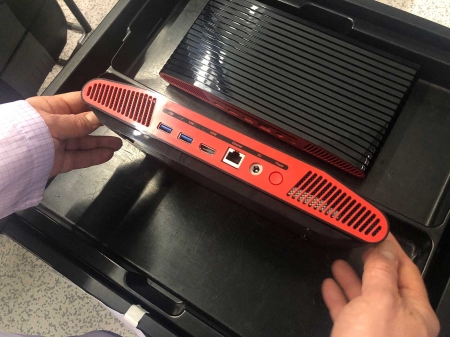
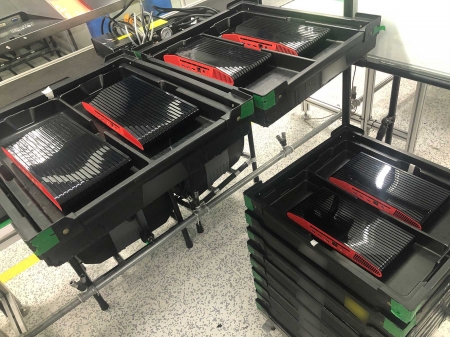

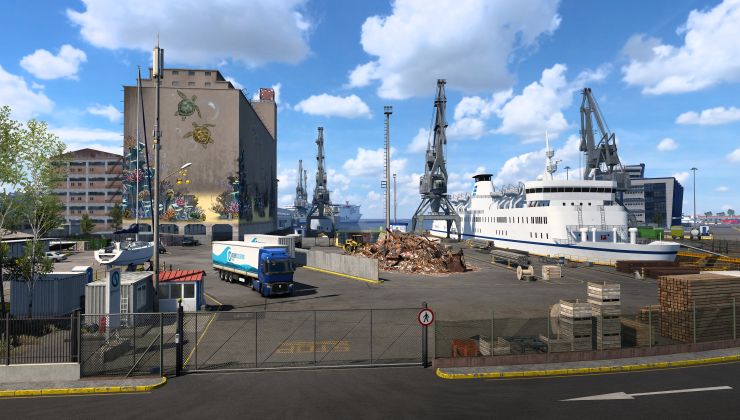
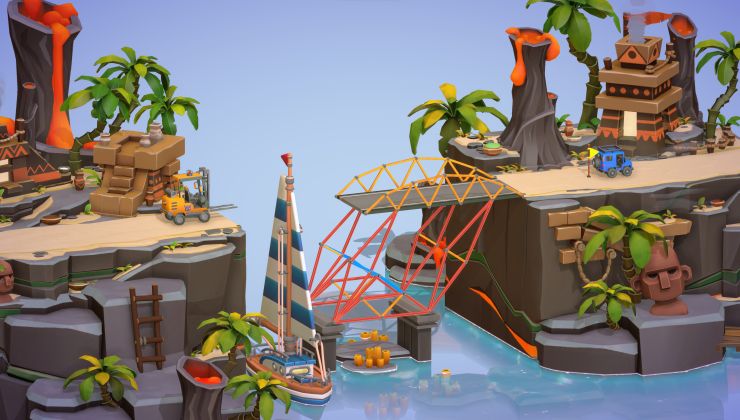
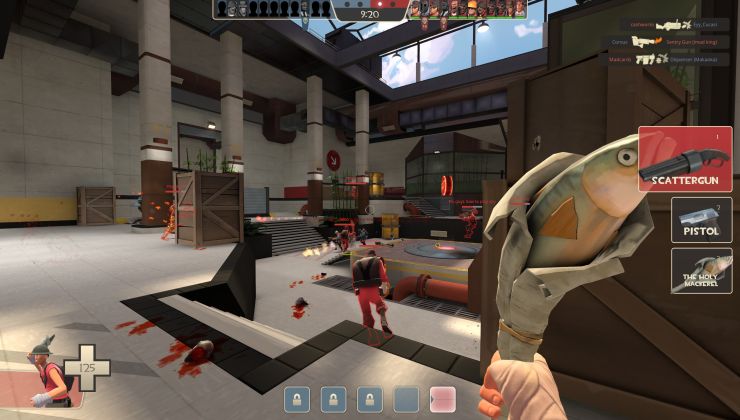




See more from me